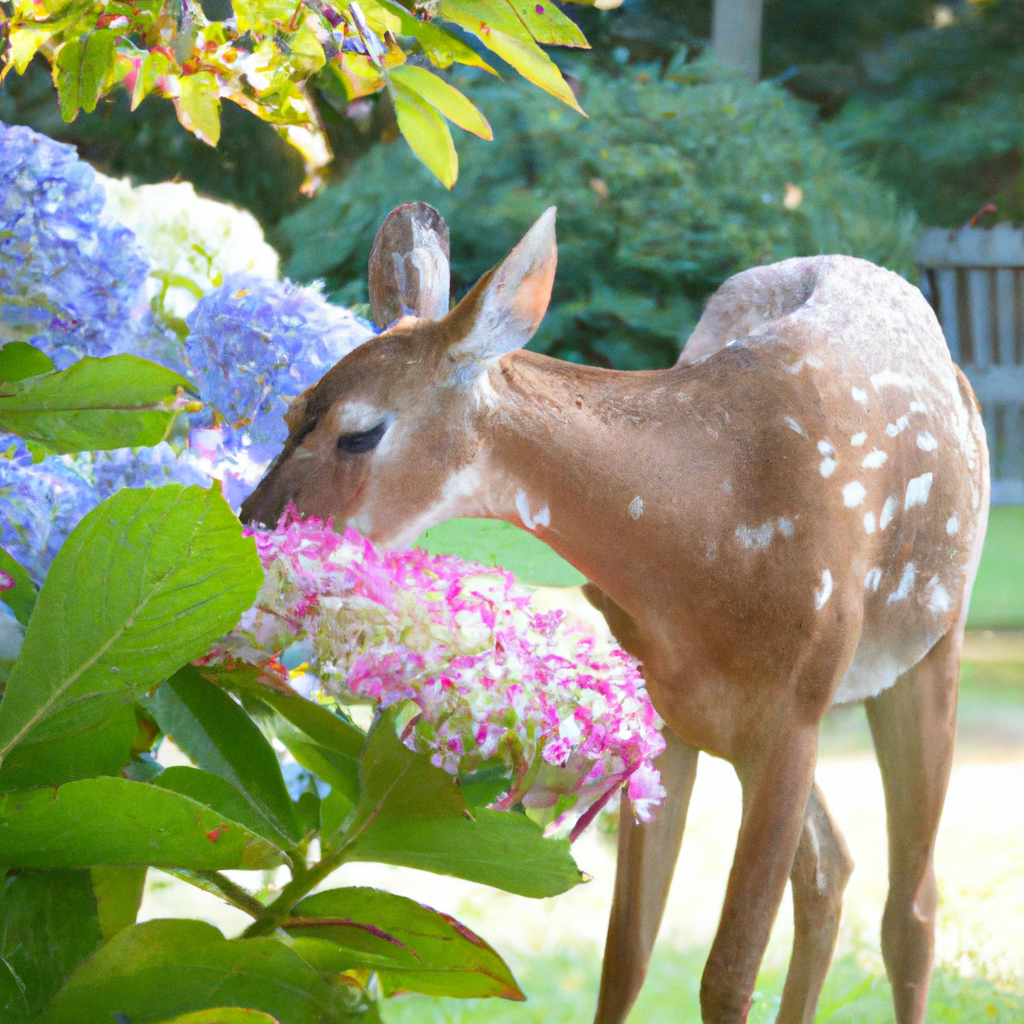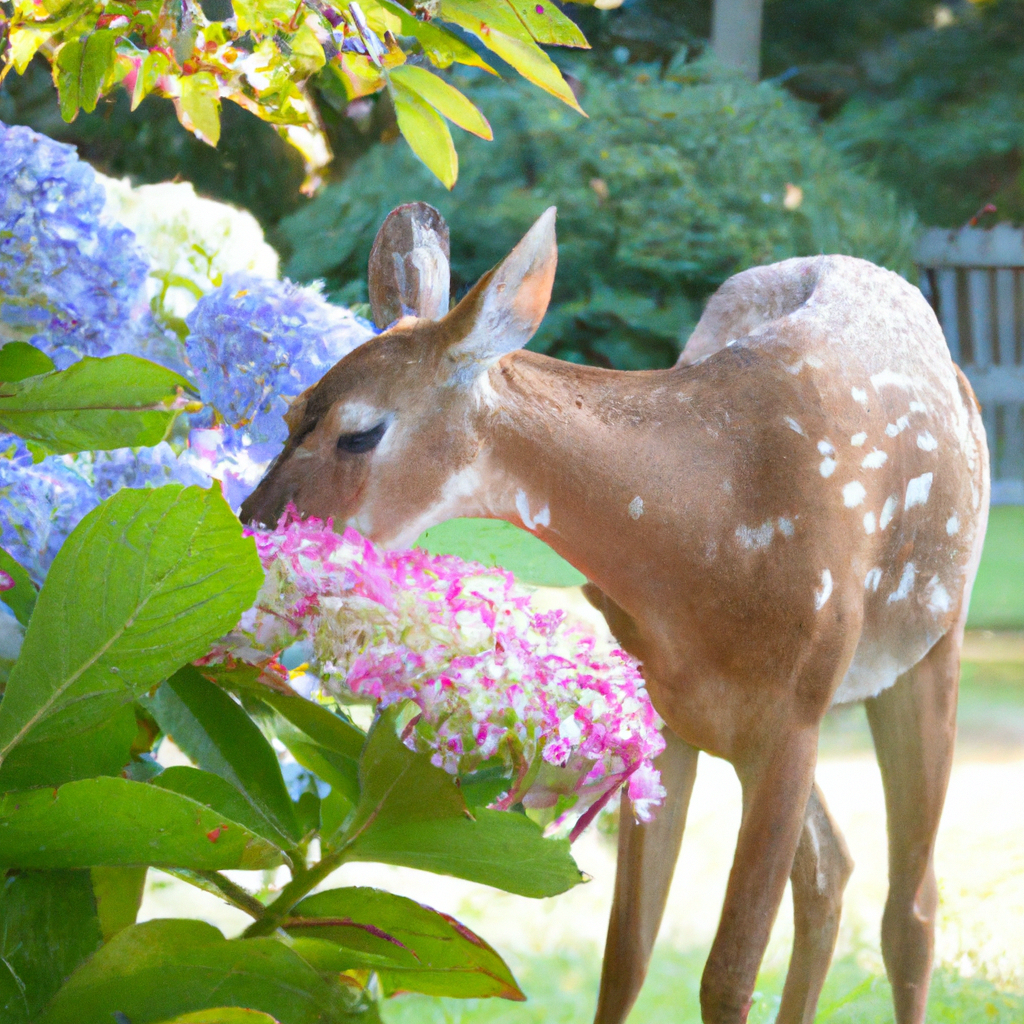
Do Deer Eat Hydrangeas & How To Stop Them
Introduction to Deer and Hydrangeas
Deer are graceful and enchanting creatures that, unfortunately, can pose a threat to your beloved garden plants, such as hydrangeas. These beautiful flowering shrubs captivate many garden enthusiasts with their vibrant blooms and alluring foliage. But, if you live in an area where deer roam freely, you might be wondering if these majestic animals find hydrangeas as irresistible as you do. Regrettably, deer do have a penchant for feasting on hydrangeas, causing significant damage, particularly to younger plants. Fear not, though, for there are various methods and strategies you can employ to keep your precious hydrangeas safe from these hungry herbivores.
Do Deer Prefer Hydrangeas over Other Plants?
While it is unfortunate for hydrangea enthusiasts, deer do seem to have a preference for these lovely plants. The lush foliage and vibrant blooms of hydrangeas attract deer, making them a favorite snack. However, this does not mean that deer will not feed on other plants as well. Deer are known to be opportunistic feeders, and their diet can include a wide variety of plants. In areas where food is scarce, they might even feed on less desirable plants. So, although hydrangeas may be a top choice for deer, it is essential for gardeners dealing with deer to protect not just their hydrangeas, but also other plants that may be at risk of deer damage.

How Much Damage Can Deer Cause to Hydrangeas?
Deer can cause significant damage to hydrangeas, especially during their peak feeding seasons of spring and autumn. While these beautiful plants are known for their resilience, young hydrangeas are more susceptible to deer damage than older, more established shrubs. Deer are primarily attracted to the lush foliage of hydrangeas, often targeting the tender leaves and flowers, which can result in stunted growth and reduced blooming. In severe cases, consistent deer grazing can weaken hydrangeas over time, potentially leading to the plant's demise. Protecting your hydrangeas through various deer deterrent methods can help mitigate damage and support their overall health and beauty.
Can Hydrangeas Survive Deer Browsing?
Garden enthusiasts may wonder if hydrangeas can survive deer browsing. While hydrangeas are not particularly deer-resistant, they can still thrive in a garden frequented by these animals. To protect hydrangeas, consider planting species that are less attractive to deer, such as bracted or climbing hydrangeas. You can also place wire cages around smaller plants to shield them or surround the hydrangeas with leafy plants, making it difficult for deer to access. In addition, using homemade or store-bought deer repellents can deter these animals from nibbling on the tender leaves and tips. With proper precautions, your hydrangeas can flourish, even with deer nearby.
Are Certain Types of Hydrangeas More Resistant to Deer?
While no hydrangeas can be classified as completely deer-resistant, there are certain types that may be less appealing to deer due to their taste or texture. For instance, Bracted hydrangeas have soft, fuzzy leaves that are not as appetizing to deer as other species, making them a more resistant option. Climbing hydrangeas, while not entirely resistant, might also face less damage compared to other types. However, it is essential to remember that these plants are still susceptible to deer damage and might require additional protective measures such as barriers and repellents to ensure their healthy growth in deer-prone areas.
What Are Some Effective Ways to Deter Deer from Eating Hydrangeas?
Deer can be quite a nuisance when they feast on the beautiful foliage of hydrangeas, potentially damaging both new and old plants. To deter these unwanted visitors from eating your beloved flowering shrubs, consider implementing the following effective strategies. Start by placing deer-resistant wire cages around younger, more vulnerable plants. Plant hydrangeas among other leafy plants so they blend in and create tight spaces, making it difficult for deer to navigate. Another alternative is using a homemade, non-toxic deer repellent spray mixture of egg yolk, water, and baking powder. Apply this spray every 1-2 weeks and after rain, as the unpleasant smell effectively keeps deer at bay. Lastly, installing sturdy fences around your property can serve as a prime deterrent against deer.
Will Fencing Keep Deer from Eating Hydrangeas?
While deer have a penchant for munching on hydrangeas, there is good news for those looking to protect their beloved plants - fencing can be an effective solution! Erecting a sturdy fence around the hydrangea bushes serves as a primary deterrent for deer, keeping them at bay and ensuring the survival of your plants. You could also opt for a tall fence as deer are known to jump great heights; a height of eight feet should suffice. Additionally, installing deer-resistant wires is another measure that can be taken to further safeguard your hydrangeas. Remember, it's crucial to protect your flowers by implementing the right deer-removal strategies, and with proper fencing, you can rest easy knowing your hydrangeas will thrive.
Are Repellents a Good Option for Protecting Hydrangeas from Deer?
Repellents are indeed a good option for protecting hydrangeas from deer, especially if you want to avoid the use of fences or other barriers. Many gardeners have successfully used natural, chemical-free repellents to deter deer from their precious hydrangeas. One such recipe includes mixing an egg yolk with water and baking powder or soda, which creates a foul smell for deer while remaining odorless to humans. This repellent should be sprayed near your hydrangea bushes every one or two weeks, and after rainfall to maintain its effectiveness. Repellents are an eco-friendly, low-cost, and effective way to safeguard your hydrangeas from unwelcome deer visits. All of these could also be good ways to keep deer away from your roses as well.
Conclusion and Tips for Protecting Your Hydrangeas from Deer Damage.
In conclusion, while hydrangeas are not entirely deer-resistant, certain species may be less prone to deer damage. To protect your hydrangeas, consider planting those with higher resilience against deer, such as bracted or climbing hydrangeas. Combine this with the use of physical barriers, like fencing, and regular application of deer repellents to deter these animals from grazing on your precious plants. Keep in mind, however, that deer may still occasionally nibble on your hydrangeas if they are extremely hungry. To ensure your garden remains vibrant and beautiful, stay vigilant and utilize multiple strategies to keep deer at bay.
